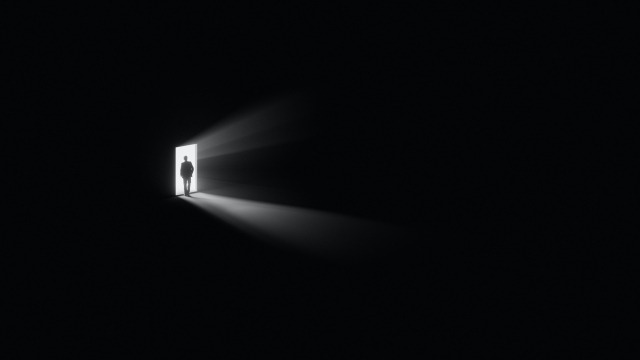Opinion: Scott Morrison early exit from Parliament a possibility as Liberal fallout continues

By Mark Kenny
A version of this article was originally published by The Canberra Times.
It took a fortnight to count but the final result in the November 26 Victorian state election made clear as of Friday evening, should have fear ricocheting around Peter Dutton's party room.
It underscored the depth of the trench into which Scott Morrison and his religiously inclined ilk have driven the once mainstream Liberal brand. Quite deliberately.
Seeking a third consecutive four-year term following the imposition of the toughest and most sustained lockdown conditions in Australia - and probably anywhere in the non-authoritarian world - there were plenty of reasons on paper why Premier Daniel Andrews could have expected to lose.
The state's net debt level will rise from $116 billion currently to $166 billion in three years and average household incomes have already tumbled down the league table of states to rank second last, ahead of SA.
As The Australian Financial Review's John Kehoe reported last month, Victoria's net debt as a proportion of the economy is twice that of NSW and in absolute dollar terms, "is forecast to be larger than the total combined of NSW ($115 billion), Queensland ($39 billion) and Tasmania $5.2 billion) in 2025-26."
Unsurprisingly, the Melbourne CBD is also a mere shadow of its former self - the lowest occupancy rates of any mainland capital.
Yet Andrews not only won, he added to the so-called "Dan-slide" drubbing his Labor party handed out to the state Coalition in 2018.
Andrews had been subject to an aggressive and orchestrated media onslaught from the Murdoch empire via its Herald Sun newspaper and through Sky News "after dark" where boisterous commentators fumed and fomented, confidently predicting his demise.
Labor's primary vote did fall in places, notably in a number of his traditional strongholds, but not enough to see those seats lost.
The story of the election was twofold. First, the Liberal Party, defined by its most visible form, the former Morrison-led federal government, remains poisonous in Victoria. Second, the foaming hyperbole of partisan media changed nothing.
Victorians remember the performance of the Morrison government and the snide attacks on Andrews from federal Coalition ministers based in the state. Many saw those attacks as betrayal and viewed the federal government's support for Gladys Berejiklian's Liberal government in Sydney as proof.
Yet so obnoxious was Morrison that even in Sydney he was loathed.
"Among Berejiklian's inner circle, it's considered a joke to call Morrison 'the Prime Minister for NSW'," Nine's Peter Hartcher wrote in August 2021.
The Victorian Liberals had plenty of their own problems to turn voters off but Morrison had successfully blurred the lines of responsibility between the two levels of government, and not in a good way.
Evidence of religious extremists in the Liberal ranks in the weeks leading up to the state election also reminded voters of some of Morrison's finest disasters such as his captain's pick candidate for Warringah, NSW, Katherine Deves - a trenchant anti-trans campaigner who would have been more in tune with the Australia of the 1950s.
Morrison, Niki Savva reminds us in Bulldozed, "couldn't wait to make her convictions on transgender women a focal point of his election campaign", trumpeting her "really important" views on day one of the contest.
The thing is, her extreme views were no more "really important" to voters on the north shore and northern beaches than the kooky religious positions of Morrisonian Pentecostal candidates in Victoria six months later. Their unmasking during the state campaign - for opposing same-sex attraction, abortion, women's equality, net-zero, and even kindergarten (a well-known pathway to socialism) made the Liberal party into laughing stock.
Former Liberal staffer and now pollster, Tony Barry nailed the problem colourfully on a grim election night for his side.
"The Liberal Party room is beginning to look a little bit like Jonestown. And I suspect we'll keep on drinking the Kool-Aid next term as well," he opined on the live coverage.
Meanwhile, and not to be outdone in the cutting satire stakes, the same right-wing commentators who had boldly picked a conservative landslide, immediately diagnosed the problem: the Liberal Party had been too soft.
These hyenas of course are never wrong. In their world, it is only voters who err.
Dutton's challenge is to see past this impenetrable extremist mass, to the majority of mainstream voters who determine elections. But does he have the vision?
So far the signs are not encouraging. Liberals lining up to kiss the Morrison ring when they should have been censuring him for flagrant breaches of public and parliamentary trust, suggest the lesson for Dutton has not landed.
But might he be pursuing another plan? One possibility put to me, is that both Morrison and his pray-mate, Stuart Robert (he of robodebt fame and sundry other controversies) will both leave Parliament in coming weeks or months.
Could it be that Dutton agreed to oppose Labor's censure of Morrison on the understanding the former leader would quit politics, exiting stage right?
It would certainly be a plus for Dutton to get rid of the man the great Laurie Oakes recently opined was the worst PM in Australia's history.
"Until now I've not been in much doubt that the honour goes to Billy McMahon", Oakes told an audience in Canberra launching Savva's book.
"But after recent events, and particularly after reading Bulldozed, I think I have to acknowledge that Scott Morrison deserves the title of 'Worse PM Than Billy'. And by a sizeable margin."
Bulldozed? Bullseye!
Mark Kenny is a professor at the ANU Australian Studies Institute and host of the Democracy Sausage podcast.








